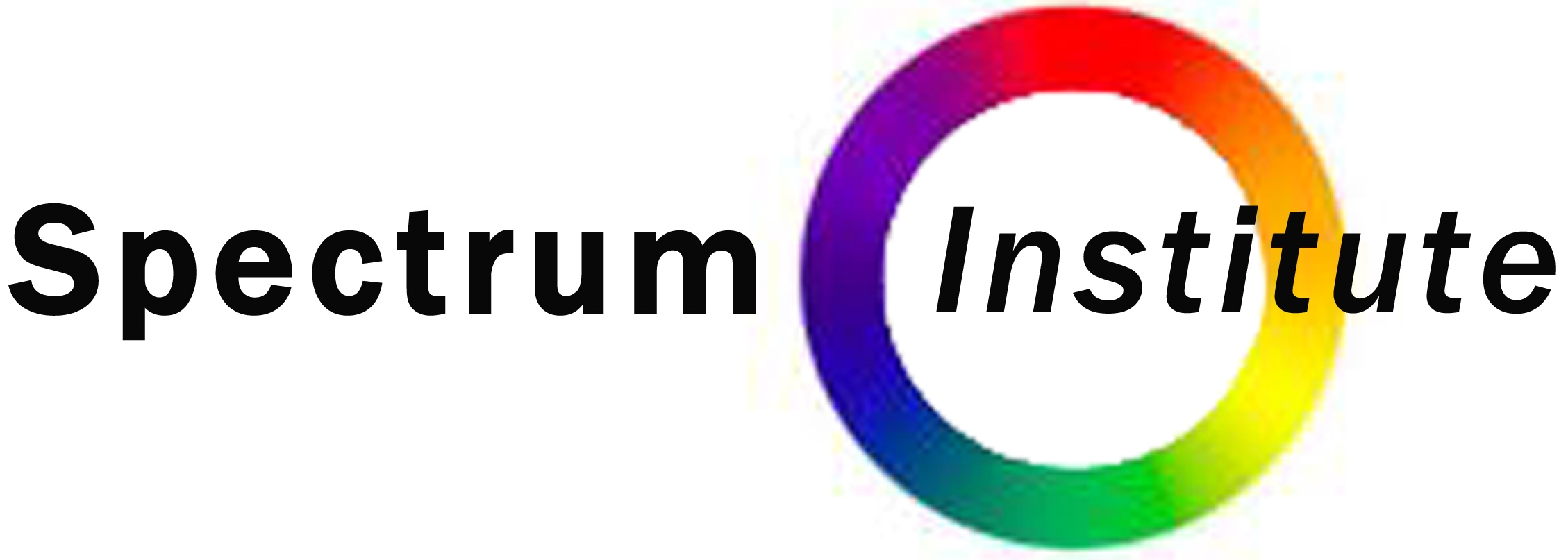|
Complaints to the Sacramento County Superior Court
The Failure of the Court to Appoint Counsel to Represent |
|||
|
Complaint #1 Developmental Disabilities |
Complaint #2 Age-Related and Other |
||
| Users Guide to Exhibits | Declarations | ||
| Sitting Ducks Essay | Press Release from Spectrum Institute | ||
|
Letters From Spectrum Institute to: Sacramento Superior Court -- Chief Justice of California -- DFEH Director Letter from The Arc of California to: Sacramento Superior Court |
|||
|
On August 16, 2018, Spectrum Institute, The Arc of California, and
California Advocates for Nursing Home Reform filed two
administrative complaints with the Sacramento County Superior Court.
The complaints are authorized by regulations implementing Title II
of the Americans with Disabilities Act and Section 504 of the
Rehabilitation Act of 1973, as well as a directive from the
California Department of Fair Employment and Housing. DFEH
implements civil rights laws in California prohibiting
discrimination on the basis of disability by programs and services
operated by the state. Complaint #1 -- filed by Spectrum Institute and The Arc of California alleges that the court's failure to appoint attorneys for conservatorship respondents who have intellectual and developmental disabilities deprives these involuntary litigants of meaningful access to justice in violation of the ADA and Section 504, as well as the protections of California Government Code Section 11135. Complaint #2 -- filed by Spectrum Institute and California Advocates for Nursing Home Reform, alleges that the court's failure to appoint attorneys for conservatorship respondents who have cognitive and communicated disabilities that are age-related or that arise from accidents or medical illnesses deprives these involuntary liigants of meaningful access to justice in violation of the ADA and Section 504, as well as the protections of California Government Code Section 11135. The complaints ask the superior court to modify its policies and practices to ensure access to justice for adults such disabilities who are issued citations by the court to appear in general conservatorship proceedings. Unlike respondents in limited conservatorship proceedings who are automatically provided counsel by the court, respondents in general conservatorship proceedings are often not appointed counsel. Without an attorney to assist them in these complex legal proceedings, the nature and extent of their disabilities prevent these litigants from having meaningful participation and effective communication in these cases. This is a violation of due process and equal protection of the law under the state and federal constitutions, as well as a violation of state and federal disability laws. The failure to appoint counsel to advocate for and defend respondents in general conservatorship proceedings is not limited to the Sacramento area. This practice exists in many other regions of the state. The problem also exists in more than 20 other states. This just happens to be the first court in the nation to receive administrative complaints of this nature. Response of the Court: On October 16, 2018, the court sent a letter to Spectrum Institute indicating that the court would not make any changes to its policies and practices to ensure access to effective advocacy services to proposed conservatees. The letter suggests that, as in the past, attorneys will not be appointed to represent some proposed conservatees and that these litigants will have to represent themselves. Reply to the Court: On November 26, 2018, Spectrum Institute sent a reply to the court. The reply included a letter amending the ADA complaint. It also included a commentary brining to the court's attention a section of the California Code of Regulations specifying that access rights for people with developmental disabilities includes the right to advocacy services in conservatorship proceedings. Referral to DFEH: On August 16, 2018, Spectrum Institute made a referral to the California Department of Fair Employment and Housing asking that a director's investigation be opened to inquire into the violation of Governement Code Section 11135 by the Sacramento Superior Court against two classes of proposed conservatees. On November 20, 2018, DFEH sent a letter to Spectrum Institute indicaing that it was declining to exercise its discretion to open such an inquiry. On November 26, 2018, Spectrum Institute filed an appeal to the director asking for that decision to be reversed. The appeal materials included information about a state regulation protecting the "access rights" of people with developmental disabilities to advocacy services in conservatorship proceedings. |
|||
|
Exhibit A Regional Center |
Exhibit B Probate Notes |
Exhibit C Citation Form |
Exhibit D Section 1471(b) |
|
Exhibit E Supreme Court |
Exhibit F Section 11135 |
Exhibit G ADA Materials |
Exhibit H Standing |
|
As legal director of Spectrum Institute, Coleman has worked closely with Dr. Nora J. Baladerian on issues involving abuse and disability. He is the primary author of “The First Report: Victims and Their Families Speak Out” – an analysis of the 2012 Survey on Abuse of People with Disabilities, which is the largest national survey on abuse and disability ever conducted in the United States. For the past six years, Coleman has directed the Disability and Guardianship Project of Spectrum Institute. Starting with a focus on California, Coleman’s advocacy for guardianship reform has broadened to become a national cause. He has written extensively on this subject. His numerous publications are found in the Digital Law Library on Guardianship and Disability Rights. Coleman’s advocacy efforts for guardianship reform have been acknowledged by awards from The Arc of California and the international organization known as TASH. |
|||
|
Pursuit of Justice is a documentary by filmmaker Greg Byers tracking the efforts of Coleman, Baladerian, and a growing network of advocates to secure access to justice for people with disabilities who find themselves entangled in guardianship and conservatorship proceedings. |
|||

 Throughout his 45 years as a civil rights
attorney, Thomas F. Coleman has advocated for a variety of causes and
minority populations, including cases and projects promoting justice and
equal rights for people with intellectual and developmental disabilities.
Throughout his 45 years as a civil rights
attorney, Thomas F. Coleman has advocated for a variety of causes and
minority populations, including cases and projects promoting justice and
equal rights for people with intellectual and developmental disabilities.